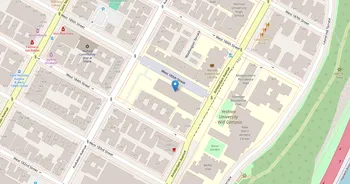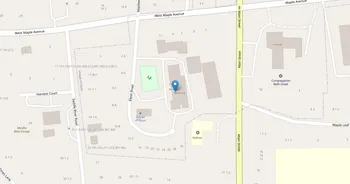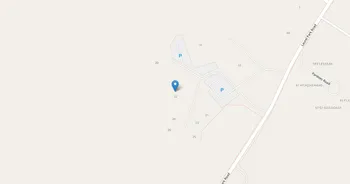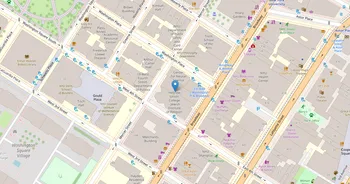Yeshivath Shaar Hatorah : Overview, Courses, Scholarships & Rankings
About Yeshivath Shaar Hatorah
Set in a tree lined pocket of Kew Gardens, Yeshivath Shaar Hatorah is known for serious Torah learning paired with solid general studies. Courses lean into close reading, reasoning, and clear expression, with faculty who coach closely. The beit midrash hums, backed by a library, quiet study rooms, computer access, and a welcoming dining space. Student services include advising, counseling, and learning support.
Student life is focused yet down to earth. Daily prayer and chavruta study set the rhythm, while clubs, volunteering, and pickup sports add balance. Nearby parkland and neighborhood cafés offer easy breaks. And the city's culture sits a short ride away. The campus has a reputation for warmth, mutual respect, and steady discipline. Career prep grows through mentoring, guest speakers, and community ties across Queens and New York. Rooted in classic European yeshiva tradition, it values character as much as knowledge.
Key Institutional Details
Contact & Profile
Academic & Institutional
Academic Programs & Fields of Study
Yeshivath Shaar Hatorah offers 1 degree programs across 1 major academic fields, graduating approximately 7 students annually. The most popular fields by graduate volume are Philosophy (1 programs, 7 graduates). Explore program details, award levels, and graduate demographics below.
Philosophy (1 programs, 7 graduates)
Philosophical Studies, Ethics and Religious Thought
| Program Name | Graduates | Gender Distribution | Award Levels | CIP Code |
|---|---|---|---|---|
| Talmudic Studies | 7 |
|
Bachelor's
|
38.0207 |
Admission Requirements & Test Scores
Comprehensive overview of admission criteria, standardized test score ranges, and application requirements for prospective students at Yeshivath Shaar Hatorah.
Application Requirements
Data based on IPEDS for 2022-2023 academic year. Test score ranges represent the middle 50% of admitted students (25th-75th percentile). Requirements may vary by program.
Tuition, Fees & Estimated Costs
Overview of tuition rates, housing, and other annual education expenses for undergraduate and graduate students
Financial Aid & Student Support
Summary of scholarships, grants, student loans, and financial aid statistics for undergraduate students
Student Success Metrics
Graduation rates and post-graduation earnings to help assess student outcomes and long-term value of education.
Loan Burden & Repayment Outcomes
Breakdown of loan repayment rates and student debt levels by income and dependency status.
Frequently Asked Questions
Find answers to the most common questions about Yeshivath Shaar Hatorah
How much does it cost to attend Yeshivath Shaar Hatorah?
The annual tuition at Yeshivath Shaar Hatorah is $19,175 for in-state students. When including room and board, books, and other expenses, the total estimated cost is approximately $22,125 for in-state students. Additional costs include room and board $2,300 (on-campus) and books and supplies $150.
Data based on IPEDS program completions for 2022-2023 academic year. Tuition and cost estimates are approximate and may not include all fees, personal expenses, or transportation costs.
What academic programs and degree levels does Yeshivath Shaar Hatorah offer?
Yeshivath Shaar Hatorah offers 1 academic programs across 1 major fields of study, with available degree levels: Bachelor's, Master's.
Most popular program areas include:
- Philosophical Studies, Ethics and Religious Thought (1 programs)
Data based on IPEDS program completions for 2023-2024 academic year. Numbers reflect programs where students graduated, not all offered programs.
What is the acceptance rate for Yeshivath Shaar Hatorah?
Yeshivath Shaar Hatorah has an 91.8% acceptance rate and a 77.8% yield rate, making it moderately selective.
Admission statistics breakdown:
- Total applicants: 49
- Students admitted: 45
- Students enrolled: 35
Data based on IPEDS for 2022-2023 academic year. Admission statistics may vary by program and application cycle.
What financial aid and scholarships are available at Yeshivath Shaar Hatorah?
Yeshivath Shaar Hatorah provides financial aid to 34% of first-time, full-time students, with average grants of $7,285 and average loans of $0.
Average financial aid amounts by type:
- Pell grants: $6,895
- Institutional grants: $7,286
The university supports 24 students with grants and 0 students with loans annually.
Data based on IPEDS for 2022-2023 academic year. Financial aid amounts and percentages may vary by program, enrollment status, and individual circumstances.
Related Universities




Found something useful? Help others discover it too! Share with friends, on social media, or save for later - every share helps someone find the information they need.